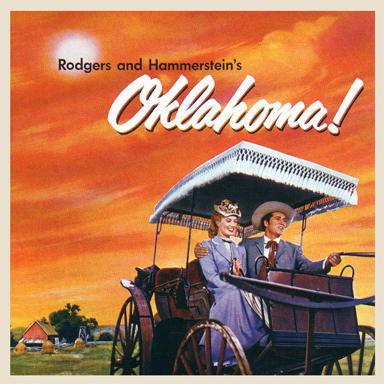 A work of meticulous scholarship has appeared entirely devoted to the 1943 musical and it sets new standards of accuracy in what has been a gossipy milieu.
A work of meticulous scholarship has appeared entirely devoted to the 1943 musical and it sets new standards of accuracy in what has been a gossipy milieu.
From the distinguished publishers Yale, it is written by Tim Carter who is David G. Frey Distinguished Professor of Music and Chair of the Music Department, University of North Carolina; among his previous works is Monteverdi’s Musical Theatre and he is not messing about. He tells you all you could possibly want to know and perhaps a bit more about who contributed what to which song, why it was dropped before the opening night, indeed exactly what did happen in New Haven.
At first it seems inappropriate to lavish such detail on a work that never for a moment pretends to be anything but superficial – the plot you remember hinges on whether the nice country girl will have a picnic lunch with the nice country boy she fancies – but it is rather comforting to think it is all recorded. I had always been intrigued that this fresh breeze from the mid-West that blew away the cobwebs with its folksy patriotism had been created by thoroughly urban New Yorkers, fairly recently arrived: Richard Rodgers was a Russian Jew, Oscar Hammerstein from a theatrical family, Rouben Mamoulian, the producer, was an Armenian. It was they who set Curly singing that the corn was as high as an elephant’s eye (an elephant?) but why not? ‘Cats’ was not written by cats, nor ‘Hamlet’ by a Danish prince.
So I am glad that the first folio of the first Rodgers and Hammerstein is definitively compared and contrasted with the second and so forth. Nevertheless, what I enjoyed tended to be the trivial bits of information that crop up on the edges. Casting for instance: John Wayne was supposed to play Curly in the original non-singing play with John Ford directing but he never did and Ward Bond took the role. Roy Rogers was proposed for the musical version, Mary Martin came quite close to being the heroine but Mrs Temple felt that the role was too mature and sexy for her daughter Shirley. Groucho Marx was considered for the peddler who is after the girl who can’t say no, Ado Annie. As we know there was a happy ending with a smash hit so all other suggestions seem wrong-headed.






Comments